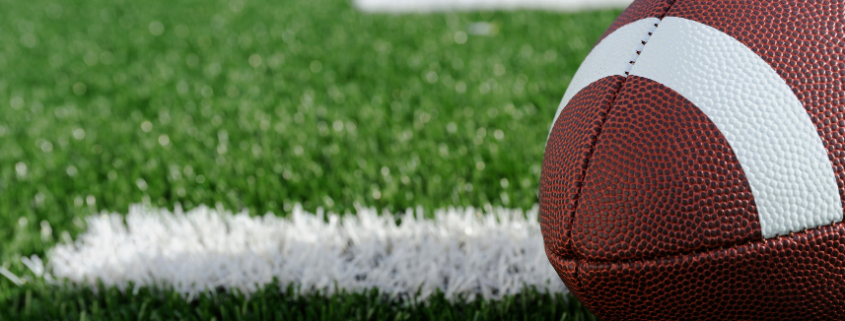When Bill Belichick left the New England Patriots, he didn’t just leave behind a dynasty of championships; he also left behind a few famous catchphrases. This spring, a management company tied to Belichick’s partner, Jordon Hudson, filed to trademark lines like “Do Your Job” and “No Days Off” with a twist: each phrase would end with “(Bill’s Version).” But there was one problem. The Patriots already held the rights. The U.S. Patent and Trademark Office refused the applications, making clear that adding a name wasn’t enough to make the marks legally distinct.
Who Owns a Coach’s Sayings?
Belichick isn’t the first big name to try to lock down a signature phrase. Sports and entertainment are full of examples:
- Pat Riley trademarked “Three-peat.”
- Michael Buffer owns “Let’s Get Ready to Rumble.”
- Even LeBron James tried (and failed) to trademark “Taco Tuesday.”
Ownership often comes down to who filed first and how the phrase is used. In Belichick’s case, the Patriots got there first — and they used the slogans in ways that made them strongly associated with the team, not just the coach.
Bill’s Version ≠ Taylor’s Version
It’s no secret where the inspiration came from. Taylor Swift turned “Taylor’s Version” into a cultural phenomenon, reclaiming her music by re-recording albums she didn’t own the masters to. Fans instantly knew that “Taylor’s Version” meant her version.
Belichick tried a similar play, but trademark law isn’t as forgiving. While Swift created entirely new recordings, Hudson and Belichick tried to piggyback on phrases the Patriots already trademarked. To the USPTO, slapping “(Bill’s Version)” onto the end of “Do Your Job” still looked confusingly close to the Patriots’ rights.
When Is Change Enough? Understanding “Likelihood of Confusion”
At the heart of trademark law is a simple question: would the average consumer be confused about where this product or phrase comes from? That’s what the USPTO and courts call the likelihood of confusion test.
A mark doesn’t have to be identical to get rejected. If two trademarks look, sound (yes, you can actually trademark sounds), or feel so similar that people might think they’re connected, the newer one won’t fly. Even small tweaks often aren’t enough.
What the USPTO Considers
Some of the key factors (often called the “DuPont factors”):
- Strength of the original mark – The more famous or distinctive a mark is, the harder it is to get close to it. Sometimes even ordinary words can gain strength through secondary meaning (Think Target)
- Similarity in sight, sound, and meaning – Do the marks look or sound alike? Do they give off the same overall impression?
- Overlap in goods or services – If both marks are used on similar products (like T-shirts, hats, or media), confusion is more likely.
- Overall commercial impression – What sticks with the consumer at a glance? The “dominant element” usually wins out, even if extra words are added. Think of Taco Bell: the bell is so central that if another fast-food chain used a similar bell logo, people might assume a connection, no matter what extra words appear beside it.
- Consumer perception – If buyers aren’t scrutinizing carefully, small differences are unlikely to prevent confusion.
Real-World Example
Think of the Nike swoosh. If another company slapped the swoosh on a shirt with the slogan “Nope. Just Rest.”, it wouldn’t matter that the words were different. The dominant element — the swoosh — makes people instantly think “Nike.” That alone is enough for a refusal.
In Belichick’s case, the dominant element wasn’t a logo but phrases like “Do Your Job” and “No Days Off.” Adding “(Bill’s Version)” didn’t change the overall impression, so the USPTO treated them as confusingly similar to the Patriots’ marks.
Why It Matters
Trademarks aren’t just about clever phrases or logos, they protect the equity you’ve built into your brand. If someone can slap on an extra word and register a lookalike mark, they get to profit off your hard work and reputation. The likelihood of confusion test exists to stop that from happening, protecting both businesses and consumers.
For Belichick, the Patriots had already built years of recognition around “Do Your Job” and “No Days Off.” Adding “(Bill’s Version)” didn’t change the core. The lesson? Small tweaks rarely create new rights.
Takeaway for Businesses
- Do a trademark search before you invest in a slogan or logo.
- Don’t assume adding a word or name makes something safe.
- Remember that distinctiveness is power, the stronger and more unique your mark, the harder it is for others to get close.
Trademark law can feel deceptively simple, but cases like this show how easy it is to get tripped up. If you’re building a brand and want to make sure your work is protected, our team can help guide you through the process and defend what you’ve built.
The attorneys at The Orlando Law Group help with all types of legal issues for business owners and individuals in Orlando, Waterford Lakes, Altamonte Springs, Winter Garden, Lake Nona, St. Cloud, Kissimmee, and throughout Central Florida.
If you have questions about anything discussed in this article or other legal matters, give our office a call at 407-512-4394 or fill out our online contact form to schedule a consultation to discuss your case. We have an office conveniently located at 12301 Lake Underhill Rd, Suite 213, Orlando, FL 32828, as well as offices in Seminole, Osceola and West Orange counties to assist you.
The articles on this blog are for informative purposes only and are no substitute for legal advice or an attorney-client relationship. If you are seeking legal advice, please contact our law firm directly.
Last Updated on September 12, 2025 by The Orlando Law Group




